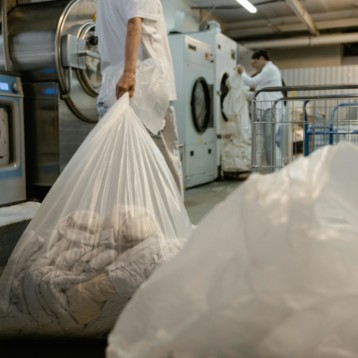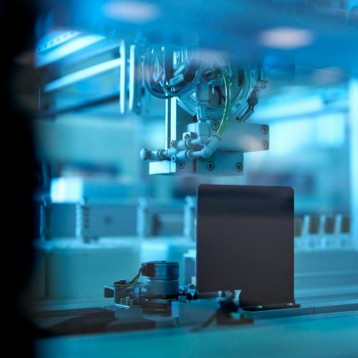The new microscope, installed in the Canadian Center for Electron Microscopy at McMaster University, expands the limits in which mankind could explore and research the closest bonds that materials consist of.
According to the university, the microscope will be used to help produce more efficient lighting and better solar cells. Other intended subjects for study are proteins and drug-delivery materials used to target cancers. Furthermore, it will assess atmospheric particulates and help create lighter and stronger automotive materials, more effective cosmetics, and higher density memory storage for faster electronic and telecommunication devices.
“We are the first university in the world with a microscope of such a high caliber,” says Gianluigi Botton, the Canadian Center’s director and the project’s leader. “The resolution of the Titan 80-300 Cubed microscope is remarkable, the equivalent of the Hubble Telescope looking at the atomic level instead of at stars and galaxies. With this microscope we can now easily identify atoms, measure their chemical state and even probe the electrons that bind them together.”
Since a regular microscope’s results could be affected if somebody breathes heavily nearby, the Titan 80-300 requires even more precautionary measures. Therefore, it is housed in a stable, specially designed facility able to withstand ultralow vibrations, low noise, and minute temperature fluctuations. Operation of the instrument will also be done from a separate room to ensure results of the highest quality.
The microscope was built in the Netherlands by the FEI Company, and each microscope cost about $15 million. The funding for the McMaster University Titan was provided by the Canada Foundation for Innovation, the Ontario Innovation Trust, the Ministry of Research and Innovation of Ontario, and the Ontario Ministry of Economic Development and Trade, through a partnership with FEI and McMaster University.
In order to demonstrate the impression the Titan 80-300 recently made on many visiting scientists, John Capone, Dean of Science at McMaster said: “They were astounded by its capability, and by the fact that there is such support in this country for a venture of this magnitude; we should be very proud that McMaster has taken the initiative to secure this facility. There are many applications for it in life sciences. This particular instrument will enable many new discoveries in the areas of fundamental biological and physical sciences that will help us to better understand the nature of diseases and the development of new cures.”
Dean of engineering, David Wilkinson, speaks of other benefits that the Titan offers. “Its ability to probe the structure of solid materials to the atomic level will have an impact on the development and commercialization of new technologies from biomedical devices to water quality monitoring and improved energy storage systems,” he said. “McMaster is committed to applying advanced research tools such as the Titan to the needs of our industrial partners, strengthening their ability to innovate and to compete globally.” Mo Elbestawi, McMaster’s vice-president of research and international affairs, adds: “The addition of the Titan 80-300 to the Center’s suite of microscopy instruments that include a Titan cryo-in situ solidifies Ontario’s and Canada’s lead in nanotechnology, and places us among the world’s most advanced materials research institutions.”
TFOT has also covered the development of an ultra smooth mirror that could be used to create a revolutionary new atomic microscope within the next several years; the Finchscope, a technology which may enable cheaper, faster, and more accurate three-dimensional imaging, and a new scanning, tunneling microscope, which enables the production of images of individual atoms on a surface. Another related TFOT story is the cell-phone microscope, which will enable visualization of patient samples that are critical for disease diagnosis in remote areas.










